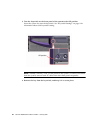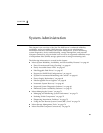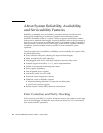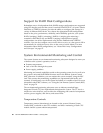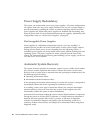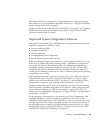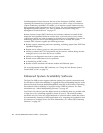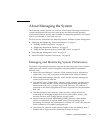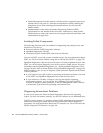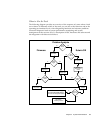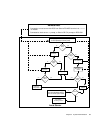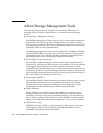
70 Sun Fire 280R Server Owner’s Guide • January 2001
Sun Management Center (formerly known as Sun Enterprise SyMON), another
operating environment level program, provides you with a variety of continuous
system monitoring capabilities. It enables you to monitor system hardware status
and operating system performance of your server. For more information about Sun
Management Center software, see “How to Monitor the System Using Sun
Management Center Software” on page 177.
Remote System Control (RSC) hardware and software combine to extend all the
diagnostic and OpenBoot firmware control from your local server to any remote
system from which you wish to connect to the local server. In addition, you can use
monitoring software such as Sun Management Center to monitor the system
remotely. RSC software supplies the following features:
■ Remote system monitoring and error reporting, including output from POST and
OpenBoot Diagnostics
■ Remote server reboot, power-on, and power-off on demand
■ Ability to monitor the CPU temperature and fan sensors without being near the
managed server, even when the server is offline
■ Ability to run diagnostic tests from a remote console
■ Remote event notification of server problems
■ A detailed log of RSC events
■ Remote console functions on both the modem and Ethernet ports
For more information about RSC hardware, see “Using the Sun Remote System
Control (RSC) Card” on page 74.
Enhanced System Availability Software
The Sun Fire 280R system supports alternate pathing for network connections and
for disk drives. Network availability is supported using multipathing features in the
Internet Protocol Network MultiPathing(IPMP) software in the Solaris 8 Operating
Environment. Disk availability is improved using VERITAS software. For more
information see “About Multipathing Software” on page 115.
Sun Cluster 3.0 software provides higher levels of availability than are possible with
a single server by connecting together a cluster of servers. The software enables
automatic recovery from any single hardware or software failure within the cluster
by automatically restarting a failed application or by migrating the application and
its resources to a backup server. For more information, see “About Sun Clustering
Software” on page 117.



